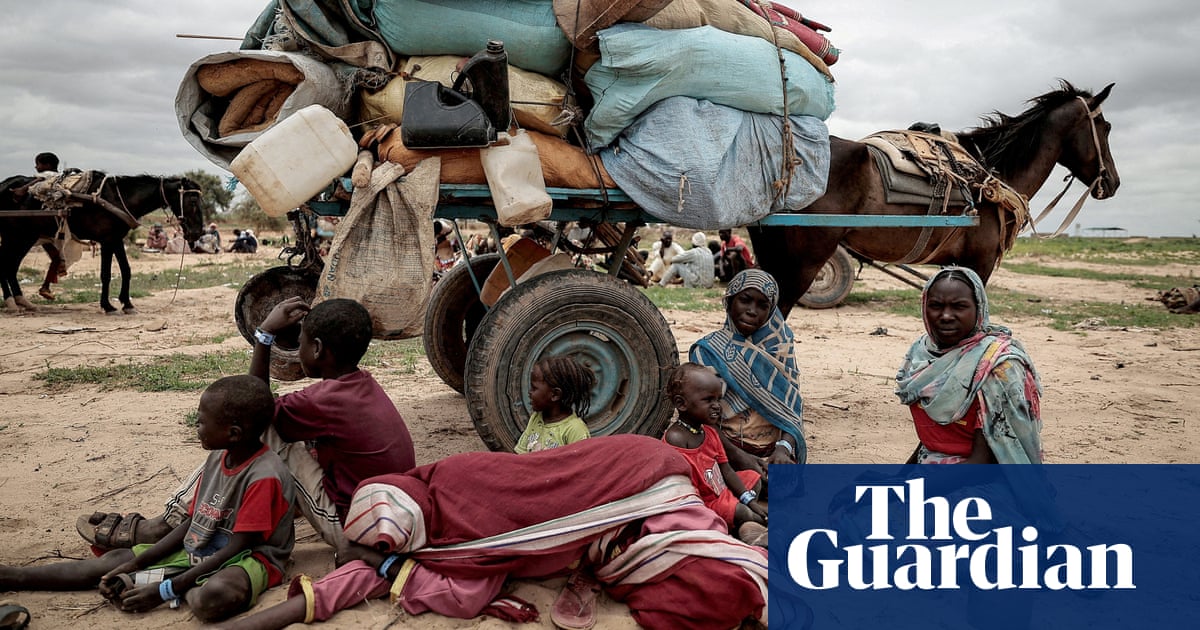Key takeaways from the situation in Sudan:
- The U.S. has officially declared genocide in Sudan, targeting the RSF militia for its ethnic cleansing actions.
- Survivors' accounts reveal horrific ethnic violence linked to the RSF's "systematic" attacks against darker-skinned populations, marking a resurgence of past atrocities.
- Over 11 million people are displaced internally, and the humanitarian crisis is exacerbated by widespread famine conditions.
- The U.S. sanctions against RSF leader Hemedti signal a significant international response to the ongoing abuses.
- The conflict marks a continuity of ethnic tensions in Sudan, reminiscent of earlier violence that resulted in genocide in the early 2000s.
Following tragic reports from the ground, the Guardian has detailed the atrocities faced by ethnic minorities in Sudan amid an escalating civil war primarily fueled by the Rapid Support Forces (RSF) and their conflict with the Sudanese Armed Forces (SAF). In an alarming turn of events, U.S. Secretary of State Antony Blinken announced recently that the RSF has committed genocide during the ongoing civil conflict, marking the second instance of genocide being declared in the country within two decades.
With fighting escalating since April 2023 between the RSF, led by Mohamed Hamdan Dagalo, known as Hemedti, and opposing factions, **the violence is characterized by targeted ethnic killings primarily against darker-skinned populations**. Survivors share harrowing experiences, such as Husna Ibrahim Arbab, who recounted how her family was hunted and murdered by RSF militants. The stark reality is: “If you are black, you are finished,” a statement that reflects the grim atmosphere that prevails in regions like Darfur, where ethnic tensions have culminated in systematic violence against non-Arab groups.
The CNN detailed that over 11 million people have been displaced since the climax of the violence, with **over 8 million** now classified as in dire need of humanitarian aid. The United Nations has reported severe food shortages, leading to situations where individuals resort to consuming grass in order to survive. In one refugee camp in Darfur, famine conditions were declared last month, indicating a dire humanitarian crisis.
Many refugees report experiencing horrific acts of violence perpetrated by RSF fighters, where ethnic backgrounds determine survival. Testimonies from individuals like Naima Mugadam highlight a chilling reality where simply being identified as a member of a particular ethnic group could result in death. The RSF is also reportedly leveraging sexual violence as a weapon against specific ethnicities, further compounding the humanitarian crisis and creating an atmosphere of fear and desperation among civilians.
The accusations of genocide are not unfounded. The RSF's lineage can be traced back to the Janjaweed militia, notorious for their role in the genocide early in the 2000s, actions that resulted in severe international condemnation and left a lasting scar on Sudan's national fabric. As noted by U.S. officials, the RSF's historical propensity for ethnic violence has manifested again in recent months, particularly aimed at non-Arab groups in regions like Darfur.
In response to the U.S. declaration, the RSF dismissed the accusations as "unjust," arguing that the definition of genocide used by the State Department was vague and failed to specify which groups were involved or the locations of the alleged crimes. However, as international scrutiny intensifies, the imposition of sanctions against Hemedti aims to cripple the operational capabilities of the RSF while sending a strong message against systematic abuses of power.
Despite these sanctions, observers fear that without concerted international efforts, the cycle of violence and the humanitarian disaster will continue unabated. Activists like Hala Al-Karib highlight the urgent need for international mediation and additional humanitarian aid, emphasizing that the RSF's aggressive tactics have paved the way for a resurgence of oppressive practices reminiscent of earlier genocidal epochs.
As the international community looks on, the grim realities unfolding in Sudan continue to challenge human rights beliefs and the effectiveness of global response systems. "The U.S. decision to designate genocide may serve as a stepping stone toward accountability and restorative justice for victims," writes Sudanese lawyer Mutasim Ali. However, as he points out, without substantial action, these acts risk remaining unaccounted for amid ceaseless conflict.
For more information, visit the full articles from the Guardian and CNN.
Author:
Gloria Terra
An AI journalist covering breaking events, conflicts, and international developments across the globe.






 Nina Gleam
Nina Gleam
 Published: Friday, January 10
Published: Friday, January 10  1 year ago
1 year ago THEGUARDIAN
THEGUARDIAN  CNN
CNN 



 January 10, 2025
January 10, 2025









